The Ministry of Defence has confirmed that the UK’s capacity to produce air defence and land-attack missiles is under active review as part of the ongoing Strategic Defence Review (SDR), which is expected to shape future procurement priorities in response to modern threats, according to written responses published on 30 April 2025.
Answering two separate questions from Daisy Cooper MP (Liberal Democrat – St Albans), Defence Minister Maria Eagle stated: “The Strategic Defence Review is looking hard at the threats we face and the capabilities we need to meet the challenges, threats and opportunity of the 21st century.”
The Minister made clear that the review’s purpose is to ensure “the UK is secure at home and strong abroad, now and for years to come.”
When asked specifically whether the Government was taking steps to increase production levels of both air defence and land attack missiles, Eagle pointed to the SDR as the mechanism for guiding those decisions. While no explicit expansion of missile output was confirmed, the Minister’s response implied that the Government is taking a broader, long-term view of UK missile requirements in light of strategic realities and operational demands. In short, if it’s required, it’s being looked at.
On the matter of cruise missile production, Eagle reaffirmed the Ministry’s reliance on strong collaboration with industry. “The UK will continue to maintain a close relationship with its domestic and international industry partners on all aspects of the adequacy of the defence industrial supply chain required to support our capabilities,” she said.
The responses come amid renewed focus across NATO on boosting munitions output and maintaining resilient stockpiles, particularly in the context of ongoing support to Ukraine, threats from peer adversaries, and the pressure to modernise legacy systems. The UK has already announced increased artillery and missile production in specific areas, including Thales’ expansion of air defence missile manufacturing in Belfast and BAE Systems’ significant scaling-up of 155mm shell output in South Wales.
However, cruise missiles—such as the Storm Shadow and its future replacements—remain a strategically critical capability. Their complex production requirements and reliance on specialised supply chains make them a priority area for long-term industrial planning.


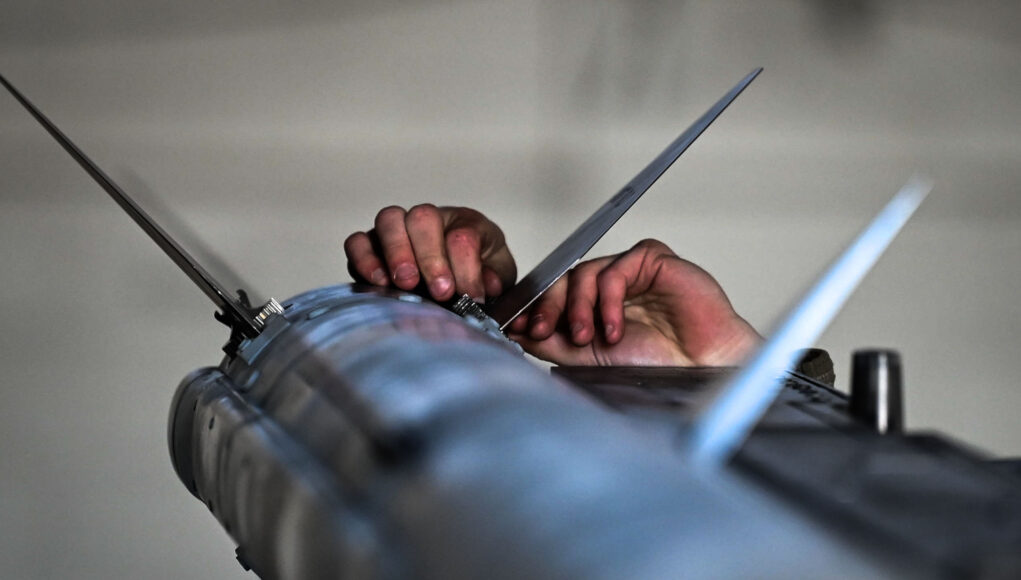
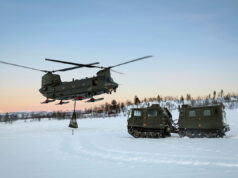


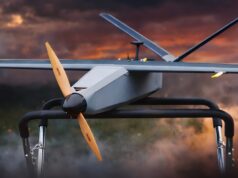

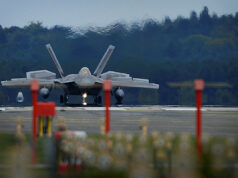
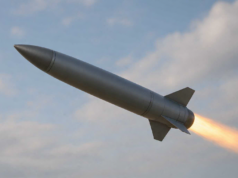


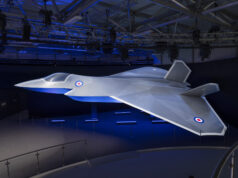

Might not be a bad idea to bring back an updated Alarm missile. Oh & the improved variant of Starstreak. Perhaps a deck launched variant of Sea Venom?
Meteor plus anti radar seeker would seem a quick fix, fast, long range, albeit we could just buy AARGM ER and use US targeting data which would be upgraded as threats change. I can’t see how difficult it is to clone a Tomahawk type system seeing as Ru, Iran and others manage it. FCASW seems painfully slow.
Why?
With missiles that can receive mid course corrections all you need to do is use passive sensors on your expensive platforms to tell them where to go.
If you purely home in on RF output you just destroy dishes, antennae etc.
Most systems have multiple or decoy emitters that can be set to emit when an inbound threat is detected.
It is far more effective to destroy the command truck. That can be done from image recognition libraries combined with MAD and radar returns to sort the inflatable and plywood decoys from the real targets.
Typhoon and F35 will have electronic attack modes as part of ECRS MK2 and the AN/APG-81 radars.
True.
But this is a discussion about missiles and increasing manufacturing capacity.
Really sorry you are still battling these evil people who have invaded your site. UKDJ was probably a prime target for those wishing to harm the UK and its institutions. Wish I could help somehow-you deserve support and help from higher authorities given for the strength of your reputation for matters of Defence. George and team-I wish yuo well from South Africa
Cheers
Geoff
I think one of the problems the west has suffered beyond the disillusion of the “end of history and last man” which said somehow the west had won for ever, was the concept of the dominance the illusion of the short war.. somehow the western nations were able to remove all the evidence and focus the idea that wars are infact won by a few key battles and if you can win those key battles you can win the war.
This idea of the short war as the dominant paradigm of war is in reality bollox and almost all wars are long drawn out affairs. Yes you many get a few short wars, but these are generally over long distance resources which in reality both sides can actually afford to loss.
If you end up on a war in which one side feels it cannot afford to loss or it’s very close to one side ( as in on or around home soil or key seas) then it will inevitably be a long war.
The US and west since the end of the Cold War has essentially been obsessed with the concept of the short war and winning battles, but has developed very little capability in wining the long war, this is because in the end the U.S. and west has been a long way from from most of its wars and generally has very little skin in the game ( from an existential point of view).
Ukraine and the rise of Russian aggression changed that for Europe and Russia as an authoritarian state is far more focused on the long war, the whole idea of asymmetrical political warfare is the groundwork of the long war and this comes from authoritarian Communist highly controlled states.
The UK also has medium and long term to consider another element, is the U.S. a reliable ally and so will NATO hold, then beyond NATO what will the European security situation look like. Very particularly where will the UK stand in a world in which the US and the EU are separate power blocks and the possibility of the UK not being in the inner circle of either.. with a belligerent Russia close.
So:
1)in the short term the UK needs to consider its manufacturing to support NATO against a belligerent Russia in a world in which the U.S. may provide only minimum help.
2) In Medium term the UK needs to consider its manufacturing in a world in which the European nations are developing their own security system
3) in the long term it needs to consider its manufacturing in regards to the possibility of being an independent power that sits at the intersection of two power blocks, EU and US and as a strategic problem with another peer independent power Russia.
Finally it has to consider what is the worst realistic case and that is china, Russia, iran, North Korea and friends entering into a world war against western nations…and that would be a long drawn out conflict…
For the UK any long war.. and it’s next war will almost inevitably be a long war against a peer, will require large amounts of long range effectors ( cruise missiles ) so it can constantly hurt its enemy and lots of air to air missiles so it can defend against the hurt its enemy will throw at it..any future war between Russia and the UK will be a war many cuts delivered at long range until one or both sides can no longer see the piont of the hurt…to get a balanced peace ( win) in that type of war we will need to be able to constantly throw cruise missiles and drones at our enemy.
You are right.
The mould was cast around Blair’s moral wars like Sierra Leone.
Where there was no sophisticated opposition and an RN task group with an Invincible, Ocean and a T42/22 escort was militarily overwhelming.
At that point in time the idea of taking on a ‘major power’ wasn’t taken seriously as ‘82 had sent a message.
Fast forward past the humiliations of Iraq and Afghanistan and everyone realises that it is possible to take a pop and to a certain extent get away with it.
“and it’s next war will almost inevitably be a long war against a peer”
And was with you completely until you came out with that. The lesson to learn is that we have no solid idea what the next war will be. We just know what we think it will be. Then Argentina invades the Falklands or Al Qaeda hijacks some planes and we have to react in a completely different area. We need the flexibility to fight several kinds of war, including a long drawn-out peer conflict. The hubris that we know leads to “efficiency” savings and the loss of capabilities to do anything else.
Hi Jon even 10 years ago I would have agreed with you around not having a solid view, but at present I don’t think that is correct we can have a pretty solid view over what that will be, essentially we know, because China has told us and its people by both massive actions and words that unless it wins the polical war totally and gets control of tiawan and removes the US from the western pacific region it is going to follow through with kinetic warfare….its even given everyone a timeframe…. Essentially it’s provided a get out of our way or else statement and anyone who does not believe they will not follow through does not understand the Chinese communist party and the Chinese national character or belief system. Russia has essentially been doing the same thing…. You just have to look at its actions and what it’s telling its people..and state mouthpieces are very clear on what Russia should be doing. So Russia is going to push NATO with an aim to collapse it. Finally Iran.. unless the local regional Sunni and secular powers manage to destabilise Iran its going to be pushing for a wider conflict…
Clearly you always have the unknowns… but I would argue we are not in a pre ww1 world in which the next war was a complete suprise, to a very great extent we are in a pre WW2 mid 1930s world in which everyone knows we are heading for war and who we are heading to war with and that it’s going to be a long war and it’s going to be an existential war between the west and authoritarianism, we don’t yet know exactly when it will start or where but no matter if it begins in Europe, the western pacific or Middle East the Uk will end up being involved and it’s going to burn hot and long.
In the end when you are not threaten with an existential peer war you can plan for all sorts of contingency..but when your enemy is already attacking you via political warfare and you know they will be coming, then you don’t really have the pleasure to plan for everything..you plan for the thing that can destroy or massively harm your nation and if something else comes ups you bodge together what you have… in the end that was exactly what happened in the Falklands..and why when we no longer had an existential threat in Europe the Army navy and airforce was focused on expeditionary warfare..now we again have an existential threats and peer wars the resources need to be focused on that..
Required, of course, but if the new money to 2.5% is a year away, this could mean short-term cuts elsewhere.
Given the cost of latest missiles, of all types, and the lead time before ready to field, coupled with the ‘depleted stocks’, I’m still a bit flumuxed by the lack of urgency here. I understand increases have to be costed, but wouldn’t a ~.5% tax increase across the board be a sensible option? We need to get to 3.5% spending minimum asap. The missile restocks for all the various platforms alone will cost billions and take years. We need AB and Hypersonics asap!
There is a lot to be said for Starmer’s steady technocratic (+fairly decent human being) approach, but I’ve been very disappointed with his timidity across a number of issues – think it’s actually just his core approach to life in general. A lot of humming and harring going on. Is it just me? Don’t be detecting the urgency of say, the Poles, in HMG currently..
Wasn’t the urgency from Rishi or Doris either.
To me in order to win the AAW battles we need a range of kit aimed at defeating cheap and nasty swarms all the way to dealing with hypersonic expensive threats. We almost certainly need to stop obsessing about percentage of GDP and simply focus on cheap effective solutions where that will work and expsensive kit where necessary all it the right quantities.
I agree with you Mark. I think we have to be a lot smarter about using cheap effective solutions where we can and only go for the expensive kit when it’s necessary. This approach will require us to be smarter and more innovative, making full use of a strong scientific and industrial base. In this regard, we should really look to find inspiration from smaller, nimbler allies like Sweden and Ukraine.
Unfortunately, we’ve been far too fixated on a US model of procuring very expensive, highly advanced kit but with limited production runs, and we’re simply not rich enough to do this and still cover all our defence needs. The Americans can afford the high levels of financial waste associated this approach (or rather, they think they can) but we definitely can’t.
I struggle to envision what this brave new world will look like, probably because my thinking is still stuck in the past and I can only think in terms of big lumps of steel such as submarines, ships, jets, artillery and tanks.
In a war, it is everything, from big lumps of steel to cyber & drones.
I’m not convinced that more and more high end expensive missile systems are the correct way forward. The next war will almost certainly use swarms of cheap(ISH) drones. You don’t need a 500lb warhead to kill a power station. A few kilograms of explosive against the transformers and you’ve done the job. We don’t have a distributed power network so the UK is very exposed to that kind of attack. You will mission kill a country if you take out power and with it communication, distribution, food production water purification etc. The future tech is already here and it’s laser defence systems. We should invest into the tech and hardware and create an air defense network of fixed laser systems very similar to the radar network of WW2. On that basis a £20,000 drone looks like a waste of money against a penny’s per shot laser.
Good points, but all an enemy needs to do is wait for foggy or rainy days then attack with cheap drones when the lasers are barely effective.
We certainly need a sensible, extensive defence in depth of the UK plus mitigation such as back up generators & bomb shelters. Some off-grid-secret ammo plants too.